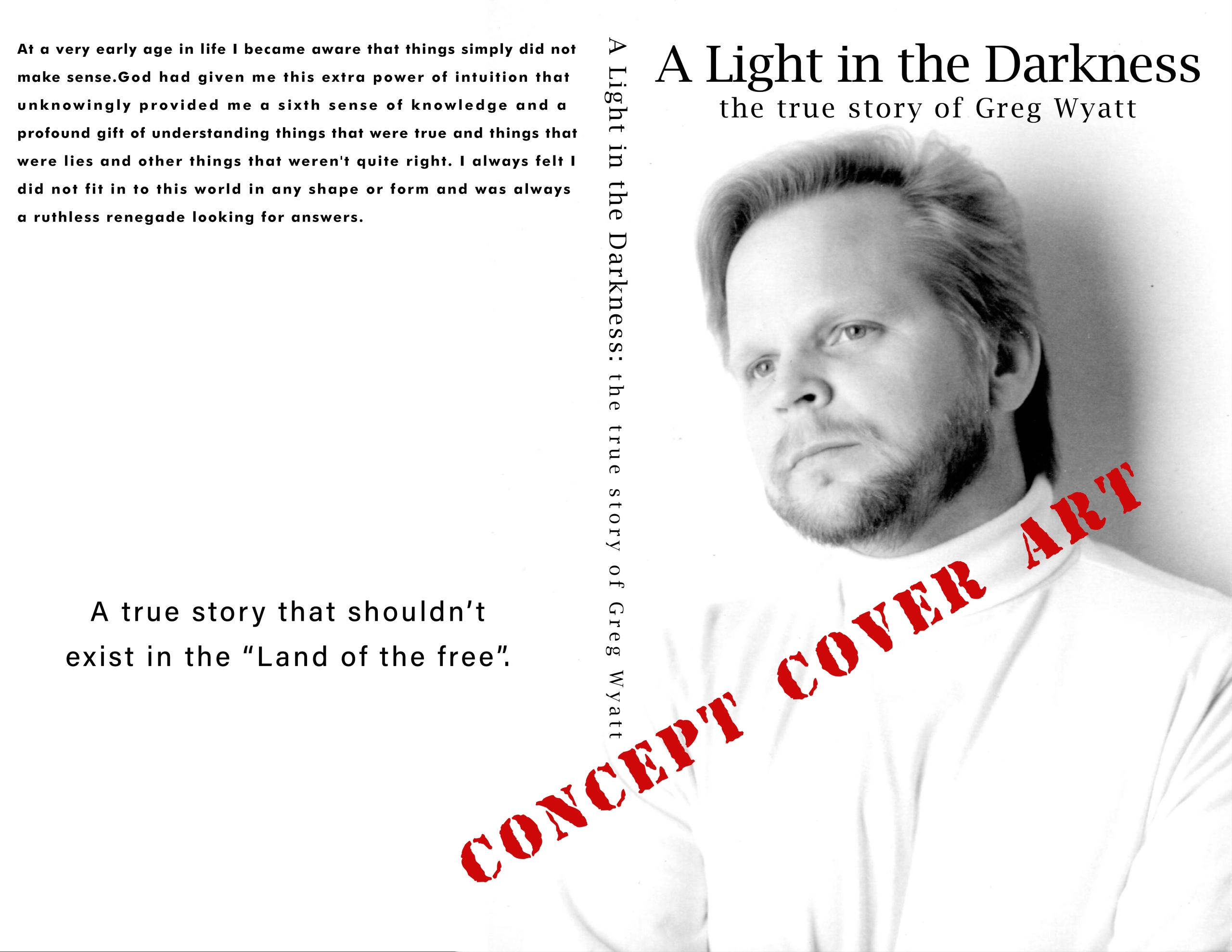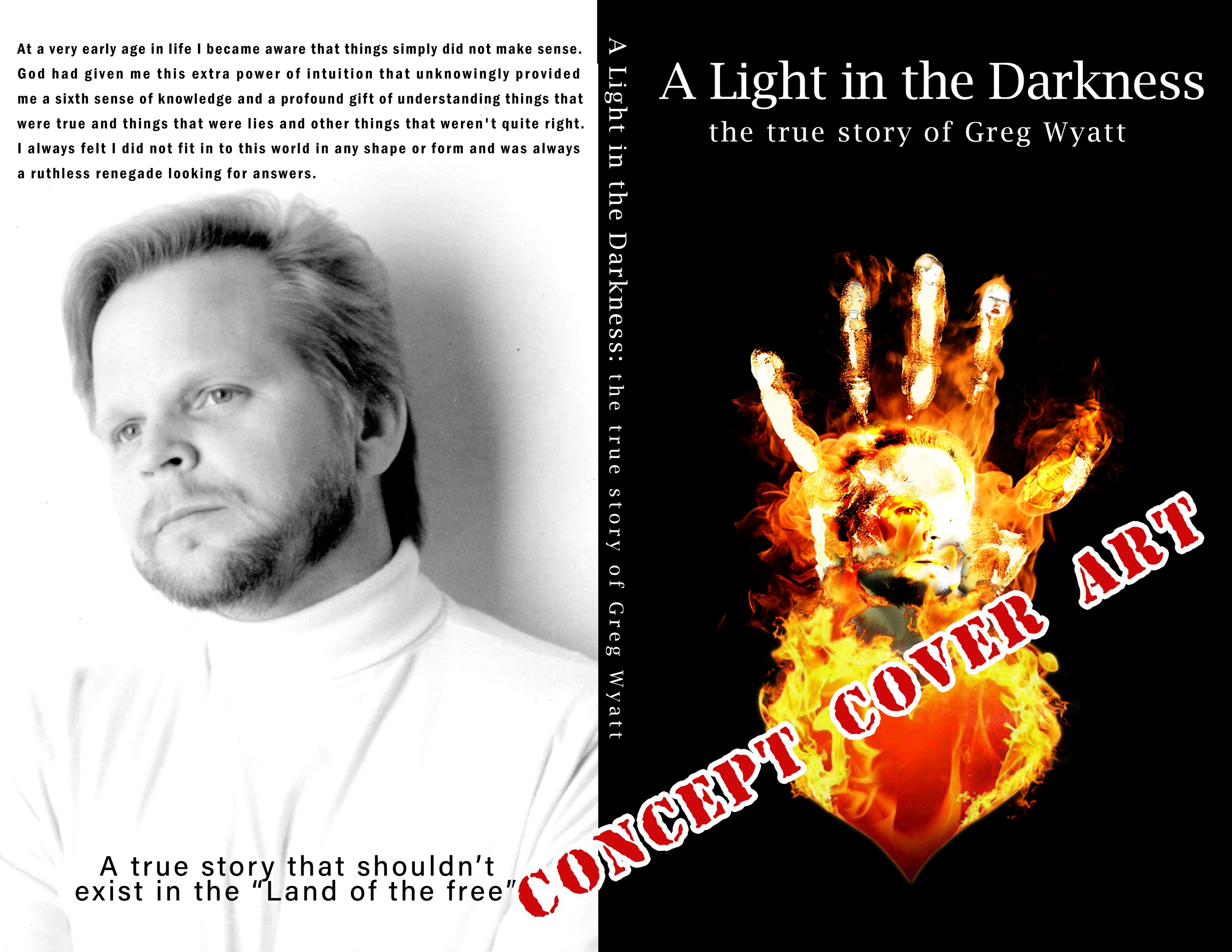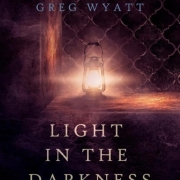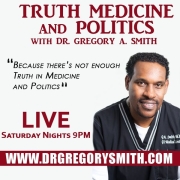Greg Wyatt – My Testimony (1993-1995)
At a very early age in life I became aware that things simply did not make sense.
God had given me this extra power of intuition that unknowingly provided me a sixth sense of knowledge and a profound gift of understanding things that were true and things that were lies and other things that weren’t quite right.
I always felt I did not fit in to this world in any shape or form and was always a ruthless renegade looking for answers.
Greg Wyatt
My Testimony
(1983-1995)
Part 1 & 2
Pages 1-9
.
What my story is about is seeking truth, which I think is what we are all trying to do on this earth. The second part of my story is about finding forgiveness after I discover the truth. It seems that everything in society and life is based on factual information, or at least we are made to believe it is. But sometimes that factual information is ignored, forgotten, or even deliberately changed. However, there is one truth that remains, and that is the truth of Jesus Christ as professed in the Bible. “I am the truth, the light, and whoever believes in me shall not die but have everlasting life.” This truth has freed me from the demons of my past, things that have happened to me that I had no idea about and where they would lead me.
When it comes to the defeat of truth through lies and deception, two events come to my mind. The first is the Holocaust. Even today, some people deny that it ever happened, and this denial is the way society tries to divide, conquer and discredit the truth. They twist factual information so many times that the very essence of truth becomes an incredible lie. The second event that comes to my mind is the days of Noah. It only took two generations for society and mankind to deny that it ever happened.
Regarding the Bible, some intellectuals let their minds rule over their hearts, saying that it is merely a collection of 300 classic fables that never took place. But in our hearts, it’s much more than that. “Be not deceived, God is not mocked. Whatever a man says, that shall he also reap.” Just take a look around you today, and it’s not very difficult to see why our country is now just a mere shadow of a once strong Christian nation. We have compromised God right out of our lives, hearts, and country.
One thing that God has given me and you is the profound gift of knowledge, a gift that I had prayed for many years. Once this knowledge is given, it cannot be taken away. The Lord says that if you have faith, you have the ability to move mountains. There have been times in my life where I challenged God and said, “God, prove it to me. I don’t believe you,” and these mountains just didn’t move, but they jumped entirely out of my way.
Through this profound faith, I have found an increasing gift of knowledge that tells me the Lord will never reveal more than he expects of me. So the more he expects of me, the more he will reveal to me. If you think that God is going to expect less of you after you hear what I have to say, it’s better that you leave now before you hear the truth.
My story begins on June 8th, 1983, my 28th birthday, at a drug treatment center in Boulder, Colorado. My life up to that point had not made much sense. I was searching for something I could never find, but I didn’t even know what it was.
Like many others, I turned to drugs. Our mantra was “the Vietnam war is a fraud, Nixon’s a liar, don’t trust anybody over 30, tune in, turn on, drop out,” and I started to discover that the lies and deception ran deep. All I wanted was to find the answers I was looking for, but in addition to these feelings, I felt there was something really terribly wrong with my life. It was inside my mind like a rat gnawing in my brain. There was something secret and sinister that just wouldn’t go away, something embedded in my soul.
For the first 10 years of my life, I grew up as an only child, and then suddenly, one hot summer day, my mom called me into the kitchen and asked me what I thought of having a sister. Well, she wasn’t pregnant, and I was confused. She asked me what I thought about having a sister. I was an only child most of my life. The closest thing that I had was a doll when I was 4 years old that my mother bought me and I named Renee. I had grown up an extremely lonely child in a world best described by me as being out of place.
Then my mom said, “Well, we’ll have to go halfway around the world to get her, and her skin will be brown instead of white. What do you think of that?” I paused for a moment, carefully thinking. And then I replied, “God loves all children!” It was an answer that reflected the Christian values my parents had instilled in me since before I could even remember when, and that was even though I was 10 years old.
My mother was a woman who loved children, and in knowing this, I always wondered why I was an only child. I also wondered why I was so different from my father. I was blonde with green eyes and light complexion. My father was very short with thick dark hair and a ruddy dark complexion. I knew in my heart there was something askew and believed I was adopted.
I looked around our old, air-conditioner-less house, filled with hand-me-down furniture and a rusted-out car that was in the repair shop more than our driveway. I noticed my friends’ new clothing compared to the old clothing I wore. And I watched my father arrive home almost at dusk in total exhaustion each day after working 14-hour shifts, 6 days a week. It was true we were poor in money, but rich in spirit. Within the next 18 months, I acquired not one, but two brand new infant sisters from a country named Korea. It was a very big step considering the US was in a full-scale war with another Asian country, Vietnam. The pioneering spirit of my mother was evident to me as I watched her love grow as these children grew from infants to adolescents and into adults. Racism in our family and neighborhood simply did not exist, even though it was prevalent in the real world.
So on that fateful morning on my 28th birthday, in that drug treatment center in Boulder, Colorado, my mother and I, behind closed doors and with my drug counselor standing by, choked back the tears mixing with the words that would change my life forever.
She said, ‘Greg, there is something I have to tell you,’ and I jumped out of my chair, exclaiming, ‘I knew it! I’m adopted! You lied to me all those years! I knew the truth, and you didn’t tell me,’ I said angrily.
‘No, Greg,’ she replied, ‘you’re not adopted. I gave birth to you. You are my son,’ she said, her voice trailing off. ‘But your father is not your biological father. You were conceived through artificial insemination.’ In a moment, my whole life flashed in front of me. Everything I believed and everything that I had been was thrown out the window. Every feeling and belief that I had about my being felt counterfeit. I didn’t know who I was, and I didn’t know how to process this information. A part of me that was lost; half of me was missing.
‘Mom, who is my biological father?’ She looked at me, then down at the floor, nervously fidgeting, searching for words. ‘I’m sorry, everything was done in secret, Greg. And all those years, I kept it silent because I thought it was some sort of crime to tell the truth. I’m so sorry. There’s just no way you will ever be able to find that information out.’
Another question rolled out of my mouth. ‘Why couldn’t Dad have children? Why couldn’t he have been my biological father?’
Cheerfully, she told me that as a young boy, back in the years of the Great Depression of the 1930s, he had been placed in the Beatrice State Home for feeble-minded youth, which was actually a social dumping ground for the poor and unwanted people of society. They were like concentration camps, work farms.
It was no secret that back then, if you had too many mouths to feed or a child that was giving you trouble, you could take them down to the Beatrice State Home, pay them $75, and they would be out of your life for good. Forever. While Hitler had his concentration camp for the Jews in the 1930s and 40s in World War II, and before that, we had concentration camps here in the US for the poor and the unwanted. If for any reason, you would be fortunate enough to be released as part of your agreement, it was mandatory that you be sterilized so that, genetically speaking, you would never produce another inferior offspring of your kind.
Part II
I sat back in my chair, my brain numb, in total shock and disbelief. I wondered what kind of God would permit this to happen to such a noble and loving man like my father. It was later revealed that he had spent over 12 years at the Beatrice State Home for Feeble-Minded Youth before his sterilization and subsequent release. I felt like my life was stuck between Disneyland and the Twilight Zone.
For the following months, I lived in a mental haze, experiencing greater confusion than when I was using drugs. I turned to God more than ever to help me maintain my sanity.
My visits to Nebraska from Colorado to see my father became more frequent. I no longer saw him in the same way as before. I developed a special appreciation for the man I called Dad, reflecting on the moments we had spent together. I imagined he must have said, “That’s my boy,” on many occasions.
Unfortunately, the decades of working 70-hour weeks took a toll on his health. Just six months after my initial revelation, my father Herbert Wyatt passed away on Thanksgiving Day 1983. I had never revealed to him that I knew we weren’t genetically related.
Despite a raging blizzard, people from all over the county made it to the funeral in Lincoln, Nebraska, to pay their respects to Shorty Wyatt. I never realized how loved, admired, and respected my father was. When his brothers, sisters, and cousins I hadn’t seen in years arrived, I felt that familiar disconnect and confusion, intensifying my genetic bewilderment. As I stood there that day, saying my final goodbyes, I prayed to God for the strength to endure the difficult days ahead, although I had no idea just how challenging those future years would be.
I tried to avoid the pain of losing my father by letting the next few months pass in a blur. My curiosity shifted to the identity of the sperm donor, the man who gave me life. I wondered what he looked like, where he lived, and what his profession might be. Did he ever think about me?
Summoning my courage, I contacted my mother’s doctor, who had delivered me 28 years earlier, in the hopes of uncovering these missing pieces of my life. Nervously picking up the phone, within minutes, I was speaking to the man who held the answers. I explained the situation, how I had discovered the secret, how much I loved my father, and how he had recently passed away, leaving a void in my heart that needed to be filled with truth and understanding.
“Do you remember this donor, the man who gave me life?” I asked. The doctor couldn’t recall anything specific. “Greg, we used quite a few donors back then,” he replied.
The doctor called out to his wife to retrieve my mother’s file from the basement. He had delivered over 19,000 babies over the years, making me wonder how many were my half-siblings. Did I have the right to know? Opening the musty and yellowed file, he smiled brightly and said, “Yes, I remember this well.”
Quietly, I prayed, thanking God for leading me to this point. The urge to grab the file and run faded quickly. I inquired about the donor’s characteristics, and the doctor described him. The man he described was a mirror image of myself: blonde hair, broad shoulders, sharp-dressed, intelligent, witty, and pursuing a PhD. A chilling sensation ran up my spine.
Over the next few months, the doctor and I developed a strong rapport. He comprehended my dilemma, and I understood his position. “The confidentiality of our patients is of utmost importance,” he emphasized. However, he also acknowledged the validity of my request. I could discern his deteriorating health, and with his condition worsening, I realized my time with him was limited. Shortly before his passing, he entrusted me with the name of the man who fathered me. Within weeks, he departed, and my quest took a new direction. I carried that name in my wallet for several days, which turned into weeks, and eventually stretched into months and years, allowing my imagination to wander.
I often pondered his whereabouts and circumstances, but more importantly, I wondered if he would accept a son like me. My diligent search for information on artificial insemination proved futile. On one occasion, I perused an encyclopedia at my mother’s house, a resource I once used for my high school studies, and looked up “artificial insemination.” To my disappointment, it contained a mere three-word reference: “See animal breeding.”
That night, I purchased a 12-pack of beer, indulged in a few familiar joints, and attempted to push the matter aside once again. For a while, it seemed to work. But questions about my humanity haunted me. Was I some sort of Frankensteinian experiment?
Five years elapsed, five arduous years filled with desperation. I reached my breaking point. Finally, I mustered the courage to confront the demons of my past and seek closure. I set aside my fears and engaged my investigative skills to locate my biological sperm donor father once and for all. But what would I do next?
Through my longstanding affiliation with the local church I had attended for decades, I sought counsel from my pastor and enlisted his help as an intermediary. That evening, he made the call to the donor. When confronted with the facts, the donor neither confirmed nor denied them. He requested time to contemplate. A week later, on February 11th, 1988, he returned the call, leaving a message on his answering machine. He expressed disinterest in meeting me but wanted to assure me that I came from “good genetic stock” and requested no further contact. This became yet another distressing event in an unending chain of misfortune.
Nevertheless, my pastor reassured me that this response was not uncommon in cases involving adoptees and birth parents. His words briefly ignited a flicker of hope within me. So, in anticipation of a positive outcome or a change of heart, I resolved to temporarily set aside the matter. Months went by, yet nothing materialized.
Now, seven years had passed, and despite the distance I had traveled, the day I uncovered my secret seemed never-ending. I yearned for healing, closure, and the ability to move forward with my life. Hence, I composed a letter to him, expressing my emotions and stating my desires with utmost clarity. Here is a copy of what I wrote.
Dear sirs,
As time passes, it becomes clear to me that we may never have the opportunity to converse or communicate as two individuals whose lives have intertwined in such a remarkable way. Over the last seven years, my life has undergone significant changes since that momentous day on July 9th, 1991. I hope that out of human decency, you will take the time to read the account of my life, a life that is intertwined with yours. I possess numerous talents and gifts that, for the first 30 years of my existence, remained shrouded in mystery. I was an enigma to myself. I always harbored the hope that our encounter would alter the course of destiny. However, today the tides of my life crash relentlessly on the shores of time, sinking even deeper into the sands of curiosity.
I do not request a meeting, though nothing would bring me greater joy on this earth. I merely ask that you become an audience member in the play that you played a part in producing, a play that God scripted exclusively for me.
I am alone in this world since my mother’s passing on September 17th, 1995, and my father’s on Thanksgiving Day in 1983. I was their only child. Until I turned 10, I had no biological siblings, but then my parents adopted two orphans from Korea in 1965. My mother was truly a pioneer, and my love for them knows no bounds. My father, however, was unable to conceive as he had been sterilized at the Beatrice State Home in Nebraska in 1945. In the eyes of eugenics, he was deemed defective. These were the people who sought to create a stronger, purer race in America. Even in 1939, Time magazine named Hitler as its Man of the Year.
During that era, being impoverished in America was, in some cases, treated as a crime. But had all these events not unfolded, I would not be writing this letter to you. For many years, I struggled to come to terms with this reality, and I believe you can understand my turmoil.
In 1983, my father passed away as a broken man at the age of 54, having suffered a series of strokes that left him incapacitated and childlike in his demeanor. Just months before his illness, my mother divulged the details of my conception and my father’s sterilization by Dr. Thurstein. She had been explicitly instructed never to share this information with me or anyone else. She genuinely believed that she had committed a crime. Perhaps you can comprehend why I previously worried about my health, as I had strived so hard to emulate my father and had failed so miserably. Discovering this truth freed me from the shackles of falsehoods but also left me confused and filled with curiosity.
I prayed fervently to God to guide me to the man who granted me life, even though I was told it was an impossible endeavor. Yet, I continued to pray with even greater determination. God has worked wonders in my life, bringing me this far. I could not ask for more, except for you to understand who I am and that I love you.
I can now understand, in a different way, why you were initially hesitant and then insistent on not meeting. When I traveled to Blacksburg in 1991, it was not solely to meet you personally, but rather to discover more about myself by delving into your life. For a whole week, I followed the trail of your footsteps from the past 30 years. I must admit, I was pleased but not surprised to uncover many of your remarkable achievements. I learned that you are highly respected, kind, and compassionate. I embarked on a detective mission, knowing that understanding more about you would allow me to understand more about myself.
Since then, I have conducted extensive historical research into my Dutch heritage. The events in Rotterdam, the experiences during World War II, and the occupation of the Netherlands by Nazi Germany have left me amazed. My heart tells me that there were many distressing occurrences during that time. There are numerous parallels between that era and my present life, connecting us together.
After much prayer and contemplation, I genuinely believe that it would be a privilege to get to know you better. My final prayer is that, if you are a Christian, you can let go of any fear and see me for the man I am. I humbly request that you grant me the opportunity to meet with you just once.
It strikes me as ironic that both my wife and I face infertility problems, similar to what you and your wife, as well as my parents, experienced. The prospect of having a child of our own appears bleak. However, this circumstance has given me a unique perspective on the bond between fathers and sons and the essence of family.
Now, I yearn for a family of my own and the chance to share both victories and defeats. I firmly believe that a life without this joy would be an immense loss. I implore you to reconsider, as I harbor no ill intentions or malice towards you.
Please note that this letter was never sent and has remained in my possession, unread, for over 30 years until now.






